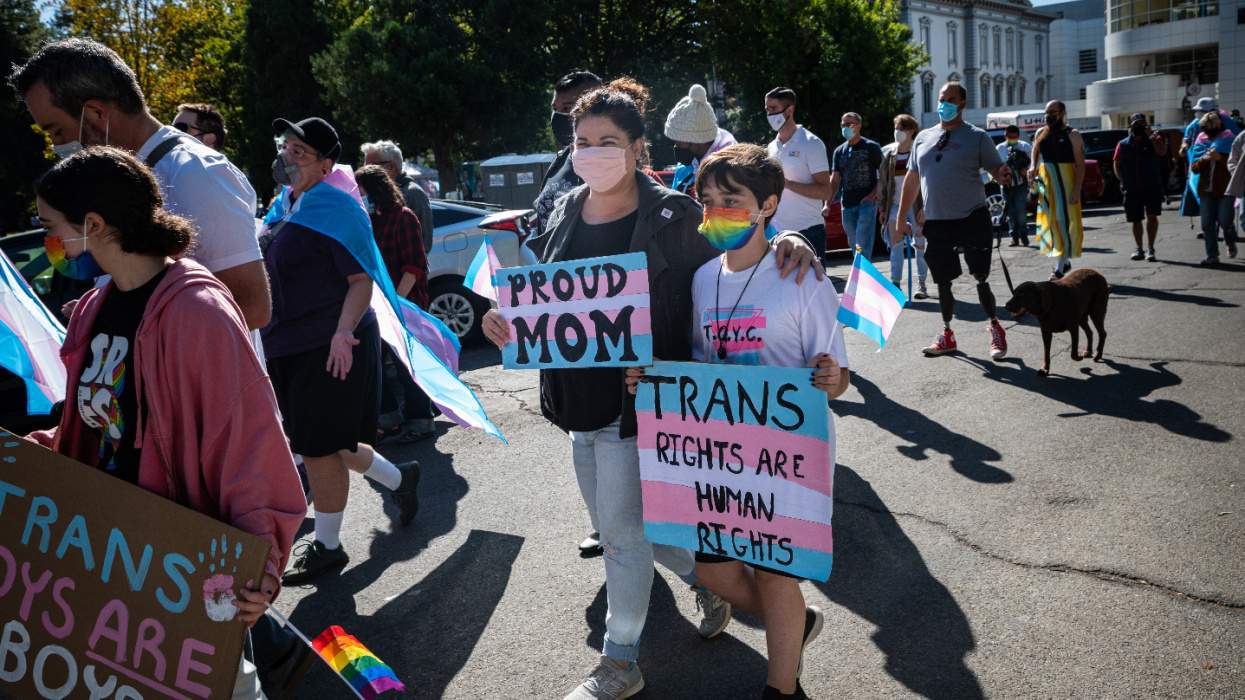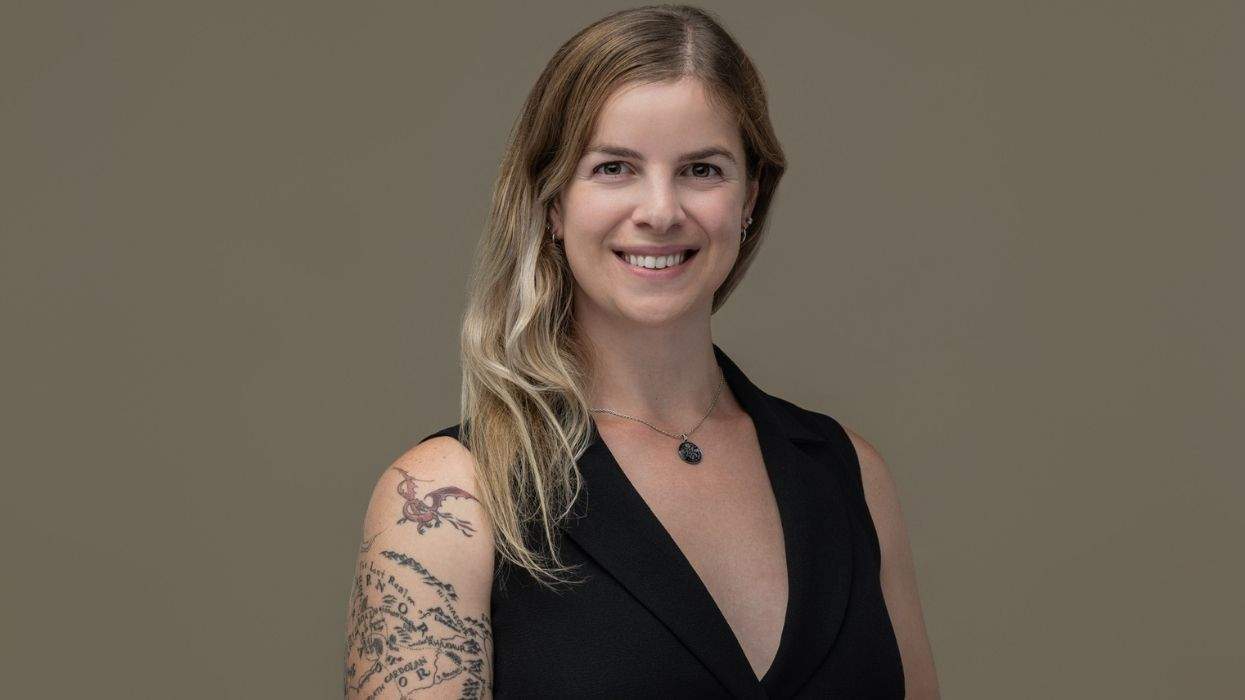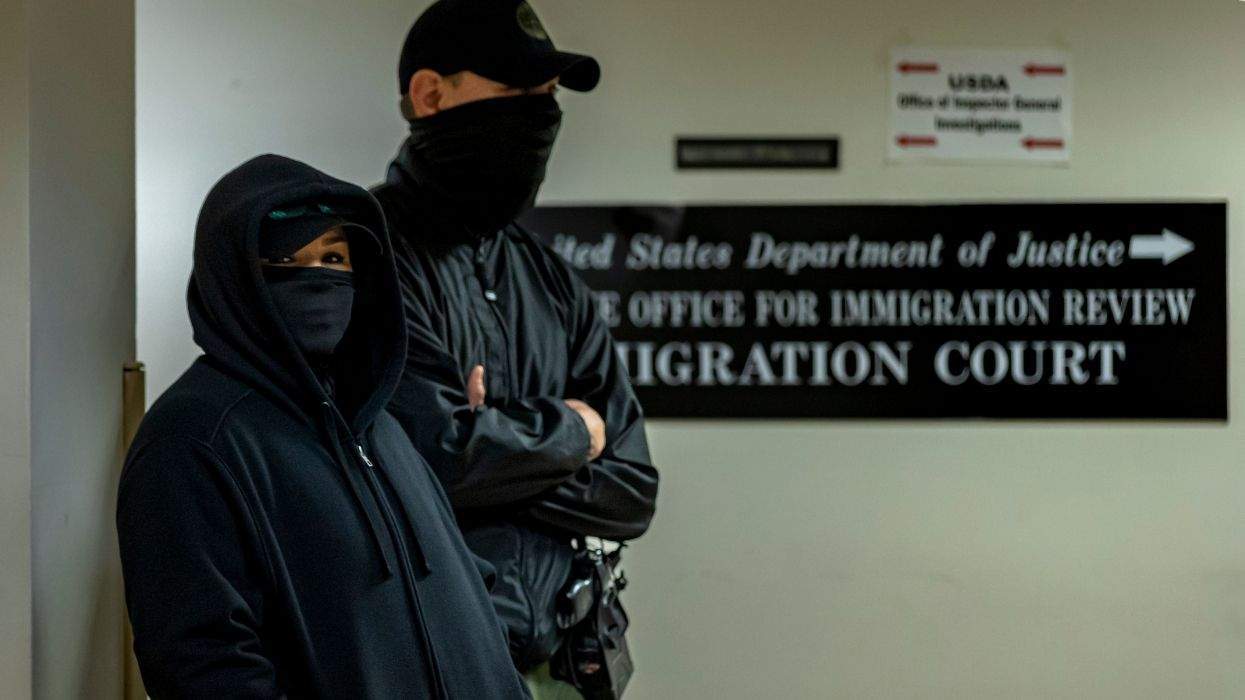The Department of Justice has released a new training video intended to assist law enforcement officers in interacting peacefully and respectfully with transgender people.
The 13-minute video, produced by the department's Community Relations Service, features three vignettes of officers working with trans people in nonemergency situations, along with basic instruction on transgender identities and pronoun usage. It focuses on politeness and respect for trans people, and includes a nod to trans people's access to restrooms. It also addresses some of the long-standing fears the trans community has regarding law enforcement due to decades of mistreatment.
In a press release accompanying the video, the Community Relations Service's acting director Paul Monteiro said:
"Transgender Americans, like all Americans, deserve to be treated with courtesy and respect by law enforcement officers. The information provided in this video will help strengthen the relationship between police and the transgender community, allowing for more effective investigations and safer encounters for officers and citizens alike."
Transgender people have a lengthy history of distrusting law enforcement, and not without cause. Monica Jones, a trans woman, made headlines in Arizona in 2014 when she was arrested and convicted for "manifesting prostitution" for simply walking down the street. That conviction was later overturned. Last year, trans woman Meagan Taylor and a friend were arrested in Iowa for simply checking into a hotel room because the desk clerk suspected they were prostitutes.
The 2011 National Transgender Discrimination Survey found that more than one in five trans people have experienced harassment at the hands of law enforcement. This is particularly concerning for trans people of color, who face substantial systemic inequality, particularly poverty, homelessness, and participation in underground survival economies, all of which places them at higher risk for law enforcement contact.
The same 2011 report also found that nearly half of trans people fear seeking police assistance due to perceived bias. Given the extraordinarily high and escalating rates of violence faced by the trans community, particularly trans women of color, it is paramount that police find ways to respectfully interact with trans people they encounter.
However, the DOJ's video largely features white trans women, though some airtime is given to Debbie McMillan, a black trans woman affiliated with the Women's Collective, an HIV education, support, and prevention nonprofit based in Washington, D.C.
Watch the video below.















